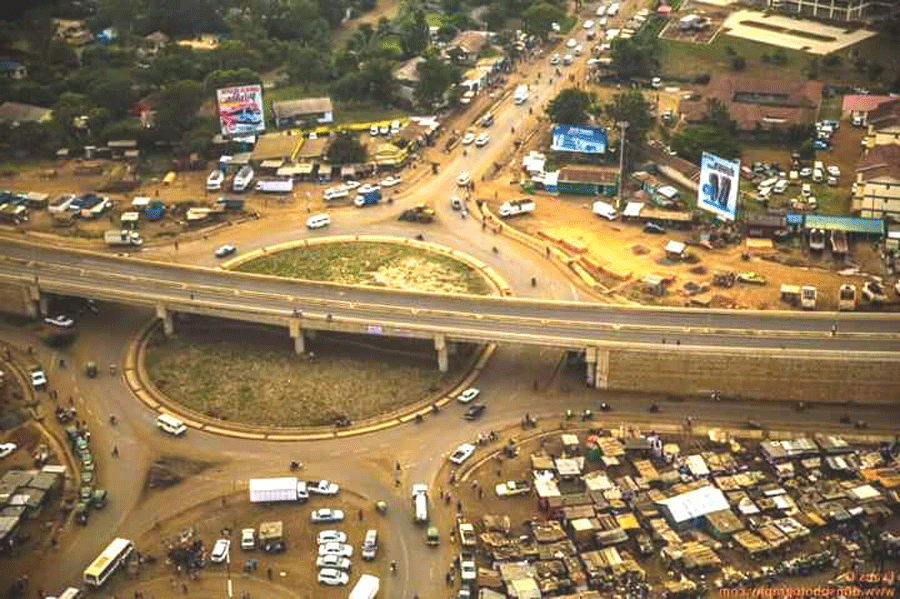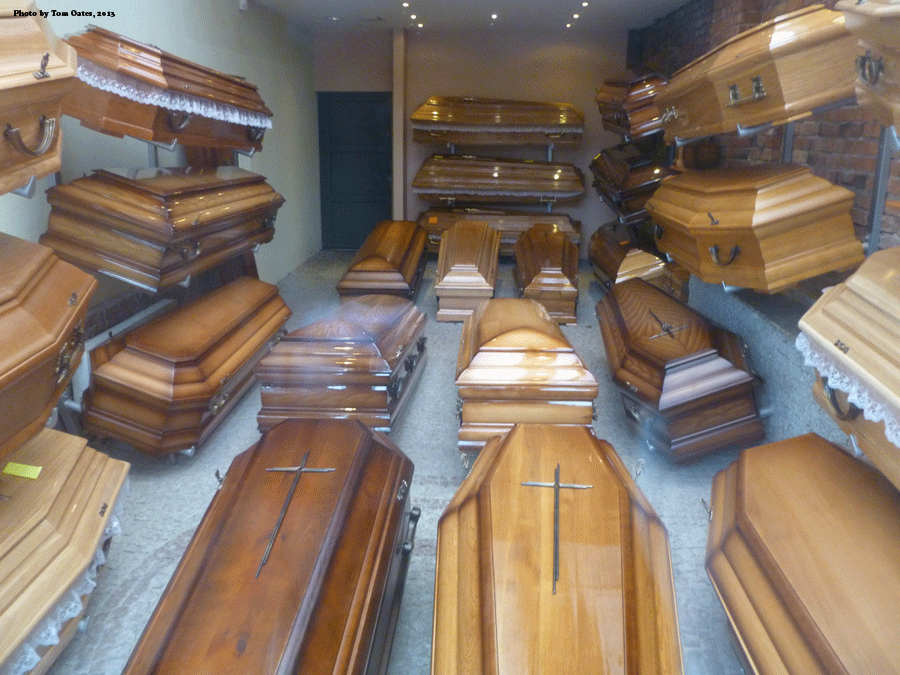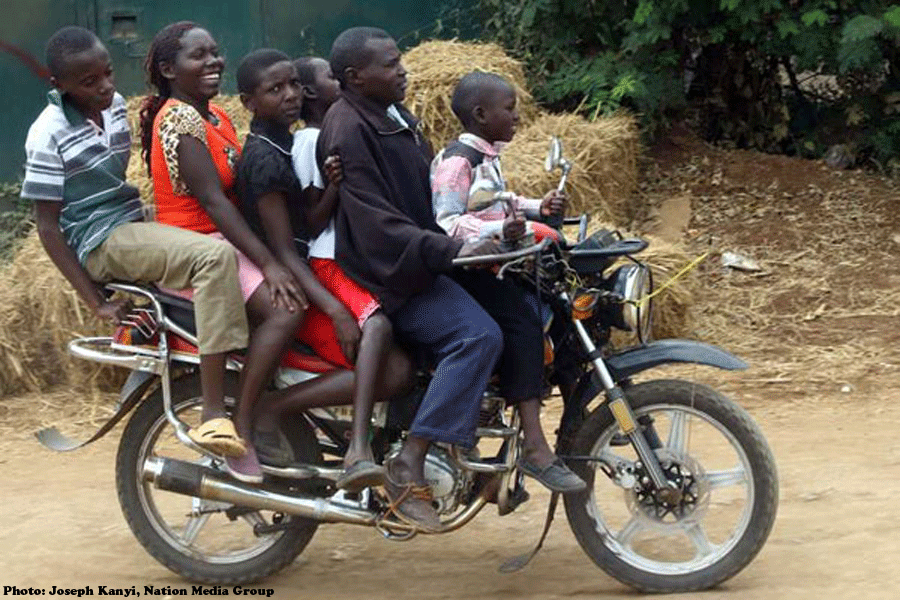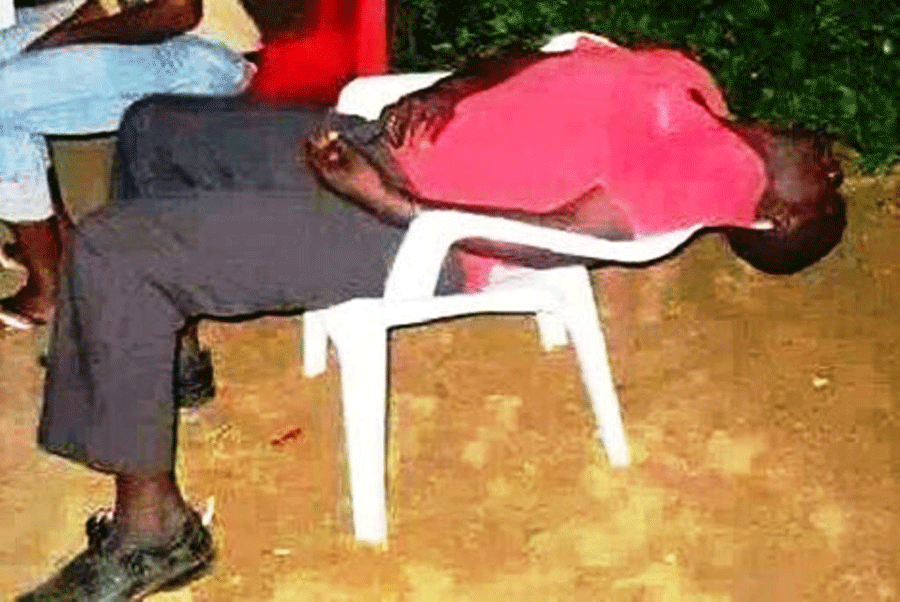A Merry Funeral … or is it A Happy Funeral? These may sound like contradictions, but they are not. For those with qualms, let us use another more palatable term: a successful, business-like funeral … No; that is not right either. Let us call it an entrepreneurial funeral for reasons to be shown presently.
A “merry funeral’ may be hard to imagine for some. The same applies to a “happy funeral”. Death is a morbid subject. Funerals are supposed to be grave, sombre, solemn, sober, dignified and sad affairs in which the departed are given a send-off to be with Their Maker who will judge them as per their worldly deeds.
The remaining mortals spend the day interceding with God to have mercy on the departed’s soul and princes of the Church harangue the living to change their ways so that they can later inherit the kingdom of the living-dead.
Yet, merry funerals exist: they are successful funerals which those who attend will remember and retell their tales in all grandiose and pomp for a long time to come.
A happy funeral is where a lot of people attend and are well fed. A happy funeral is also where the business is brisk. I will in the space available here focus on the business side of funerals.
In South Africa, we are told by Mokopi MKP Molebatsi under the hash-tag #MourningIsOurPassion, that Death is Business. If you want to ‘boost’ your funeral, professional mourners are hired out to come and cry. The charges are as follows:
• Normal Crying: R200 per mourner
• Crying and Rolling on the ground: R300 per mourner
• Crying and insulting a bit: R400 per mourner
• Crying and threatening to jump into the grave: R500 per mourner

This may be true or false. But whatever the case, it may not be news to those who are familiar with the once famous African Writers Series (AWS) books some in which writers like the late Chinua Achebe detailed how in some West African societies, professional mourners were on hire since time immemorial.
The ‘bigger’ the deceased (i.e. in terms of wealth the deceased commanded), the more numerous the professional mourners on site to grace the occasion and provide a tumultuous mourning.
Now, given the current entrepreneurial spirit sweeping through our continent, Africa, this business is expanding in areas otherwise hitherto not famous for the business in death.
In a city on the eastern sides of Lake Victoria known as Kisumu, the benefits of upgrading the former provincial New Nyanza General Hospital to Jaramogi Oginga Odinga Teaching and Referral Hospital go beyond providing a teaching hospital to the nearby Maseno University and bringing a state-of-the-art health facility to the locals.
The opposite side of the main entrance into the hospital is lined with Japanese made vans hastily converted into hearses. Business is brisk, particularly on Fridays when the departed are transported for elaborate weekend funerals in their respective homes.
Behind the hearses’ parking zone, permanent and temporary structures are sprouting daily to house the ubiquitous pharmacies selling all manner of generic drugs; mostly sourced in India.
At the gate of the mortuary and in the famous Kondele area close by, scores of coffin-making businesses are booming. The jokes doing the rounds is that as the ailing are transported to the hospital, they enjoy the sight of the coffins in which they will be interred and the hearses in which they will be transported.
 Meanwhile, lying in their hospital beds high up within the multi-storeyed hospital wards, the patients are treated to a clear view of the pharmacies from which drugs of questionable curative value are bought and brought in by their distraught relatives to quickly or eventually send them on their way to their eternal home.
Meanwhile, lying in their hospital beds high up within the multi-storeyed hospital wards, the patients are treated to a clear view of the pharmacies from which drugs of questionable curative value are bought and brought in by their distraught relatives to quickly or eventually send them on their way to their eternal home.
Then there are the professional mourners whose base is next to a mosque on the eastern fence of the hospital. They are ready with the necessary attire: white dresses for lady mourners in the event that the Christian traditions of the bereaved families require wearing white to denote purity of the spirit of the dead. The more up-market clients tend to prefer all black in line with Western funeral etiquettes.
On the question of remuneration, the mourners are ready with the Pay Bill number of their M-Pesa account so that the money is remitted directly into their account. M-Pesa is Kenya’s innovative money transfer to phones. It may be from another phone or directly from a bank or a telephony agent.
The preferred method is to pay in advance for the service. You see, this is a practical consideration. Once the funeral proper starts, the state of confusion that surrounds the realization of a funerary event may make the bereaved forget to pay. And it may be impolite and inconsiderate to ask to be paid by those in the middle of a funeral ritual.
Like in South Africa, the rates vary per mourner. A mourner at the make-shift ‘viewing’ ceremony at the mortuary grounds is paid some five euros. Then there is the howling during the long procession home. This is charged depending on the distance and attracts about one euro per kilometre. There are other ‘mournings’ which need to be paid for separately: wailing once the casket gets home, singing traditional dirges overnight, and lamenting as the coffin is lowered into the grave among others.
Meanwhile, at the home where the funeral takes place there is more money to be made by enterprising souls. Tents are hired and village lay-abouts paid to help string them up. The latter are also paid to prepare the firewood which the professional catering establishments will use (no funeral budget is complete nowadays without the item ‘catering’.
For ‘ordinary’ funerals, catering is provided by women groups and community associations which have since turned to catering at funerals in their drive to transform themselves from welfare to ‘development oriented’ quasi cooperatives).
A new addition to the funeral enterprise is the ‘chairs-for-hire’ phenomenon. But first let me mention that for the average uninvited mourners, tents will have been put up by tent entrepreneurs so that those who wish to escape the scorching sun or the afternoon rains can shelter; at a fee of course.
Back to the chairs, whereas originally chairs were availed the mourners, the new trend is that the chairs are placed at the gate to be picked on entry. For the occasion, each chair is hired for about one tenth of a euro. Those whose do not wish to pay for the chairs or who simply can’t afford them, there is always the grass.
Finally, I forgot to mention the bicycle and motorcycle taxis (locally known as boda bodas because they emerged as the easiest means of smuggling goods across the country’s porous borders) which are hired to lead the procession – I mean a real paid for motorcade mostly of public transport vehicles called matatus – as the hearse slowly winds its way along the village paths with horns blaring and all lights turned on.
Some motorcycle will be seen riding ahead at breakneck speeds to ‘clear the way’ for the procession. These are known to occasion serious accidents which lead to filling a special wing of the referral hospital devoted specifically for cheap Chinese-made motorcycle accident victims and or result in fresh funerals.
Other than the speed, the boda bodas are usually overloaded beyond imaginable capacity; say six to a motorcycle. You are exclaiming is disbelief? But this is true! Look at this picture.

At the end of the funeral, everyone will have made profit including the pastor, who shall have collected the tithe to ‘use it to say Mass for the departed soul’ once he is back in the church. For the bereaved family which is not very religious, there are always itinerant pastors on hire at a fee – say of ten euros – to conduct the funeral Mass.
The bereaved are not to be forgotten of course. Impromptu fundraisings (called harambees, the Kenyan word of Indian origin for pulling together) are held and the collection given to the family to help them offset the funeral expenses such as the animals slaughtered for meat and the maize flower used to make mounds of mealy meal known locally as ugali (Kiswahili) or kuon (Luo).
And as is usual with such occasions, a local DJ and public address shall have been hired to provide music at the funeral venue. Prior to the burial, it is all religious songs and this goes on the entire week preceding the actual funeral. On the evening after the funeral, an extended party is launched to go on until dawn. The overnight guests and the departed’s relatives dance all night long to while away the night and prevent mosquitoes from having a sedentary target to land on and plant their poisonous proboscises.
The overnight partying has been Christened Disko Matanga; literally ‘Funeral Discos’ at which all sorts of unreligious activities occur in the cassava and banana plantations behind the homesteads.
Those who get to be very tired can always take a nap on the chairs. Usually the nap is brought on by the consumption of too much of the locally brewed Nubian gin called chang’aa.

The brew is usually brought to within a walking distance to be sold to the mourners. The happy mourners, having consumed chang’aa, can be seen sleeping all over at very awkward angles on plastic chairs. They are in a dreamland where the funerals are a never ending profit and fun business.
So you see, one can have a successfully merry, happily grave, somberly solemn, soberly sad and profitably dignified funeral all rolled in one. Death is indeed Big Business. It is where the spirit of the departed combine with the spirit of enterprise to profit all the concerned as sadness is celebrated and commoditized.
By Enoch Opondo,
Global Education and Development Organization
KISUMU – KENYA
